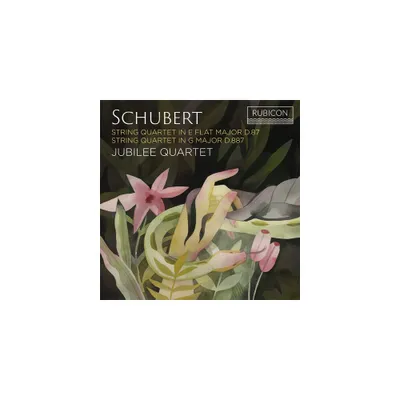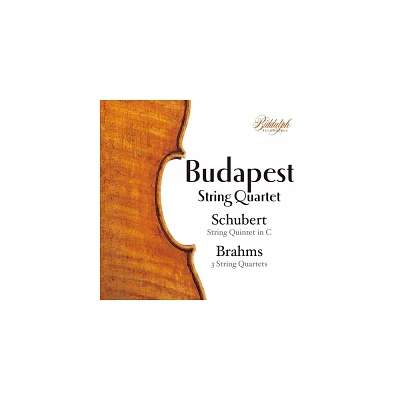Home
Beethoven, Shostakovich, Schubert: String Quartets
Loading Inventory...
Barnes and Noble
Beethoven, Shostakovich, Schubert: String Quartets
Current price: $25.99


Barnes and Noble
Beethoven, Shostakovich, Schubert: String Quartets
Current price: $25.99
Loading Inventory...
Size: OS
*Product Information may vary - to confirm product availability, pricing, and additional information please contact Barnes and Noble
The
David Oistrakh String Quartet
is not just named for the great Russian violinist but has received explicit permission from
David Oistrakh
's family to use his name. It is a fitting homage, for the fiery Russian-school playing of the namesake seems to live on in these performances. For the most part, the program covers well-trodden ground, but the interpretations are fresh. The
Beethoven
String Quartet No. 4 in C minor, Op. 18, No. 4
, is fast and intense, with a blistering Prestissimo finale coming off of an extremely agitated Menuetto; the finale is more than 30 seconds faster than that of the
Prazak Quartet
, the
Oistrakh
's labelmates. The
Shostakovich
String Quartet No. 3 in F major, Op. 73
, is the subject of some debate, with claims on one side that
added wartime subtitles to the movements only to avoid charges of "formalism" from
Stalin
's cultural henchmen. The
David Oistrakh Quartet
offers an argument for the other side; the booklet notes take the titles at face value, and, more importantly, the performance seems imbued with the haunted quality of the postwar era. This is a superb performance of this work that really inaugurated the predominant style of the latter part of
's career, with tentative opening movement, truly grim slow movements, and sardonic finales that resolve nothing. The album concludes with a finale, the single-movement
Schubert
String Quartet No. 12 in C minor ("Quartettsatz")
, and an encore, an arrangement of
Paganini
's
Caprice No. 24
for string quartet by the group's violist,
Fedor Belugin
. The enterprise sounds ridiculous, but the results are delightful, with virtuoso requirements for all four players. This hardly follows on the highly serious program, but it doesn't really matter; the arrangement is one of a kind. This is a strong entry from a young quartet with a growing reputation. ~ James Manheim
David Oistrakh String Quartet
is not just named for the great Russian violinist but has received explicit permission from
David Oistrakh
's family to use his name. It is a fitting homage, for the fiery Russian-school playing of the namesake seems to live on in these performances. For the most part, the program covers well-trodden ground, but the interpretations are fresh. The
Beethoven
String Quartet No. 4 in C minor, Op. 18, No. 4
, is fast and intense, with a blistering Prestissimo finale coming off of an extremely agitated Menuetto; the finale is more than 30 seconds faster than that of the
Prazak Quartet
, the
Oistrakh
's labelmates. The
Shostakovich
String Quartet No. 3 in F major, Op. 73
, is the subject of some debate, with claims on one side that
added wartime subtitles to the movements only to avoid charges of "formalism" from
Stalin
's cultural henchmen. The
David Oistrakh Quartet
offers an argument for the other side; the booklet notes take the titles at face value, and, more importantly, the performance seems imbued with the haunted quality of the postwar era. This is a superb performance of this work that really inaugurated the predominant style of the latter part of
's career, with tentative opening movement, truly grim slow movements, and sardonic finales that resolve nothing. The album concludes with a finale, the single-movement
Schubert
String Quartet No. 12 in C minor ("Quartettsatz")
, and an encore, an arrangement of
Paganini
's
Caprice No. 24
for string quartet by the group's violist,
Fedor Belugin
. The enterprise sounds ridiculous, but the results are delightful, with virtuoso requirements for all four players. This hardly follows on the highly serious program, but it doesn't really matter; the arrangement is one of a kind. This is a strong entry from a young quartet with a growing reputation. ~ James Manheim


















